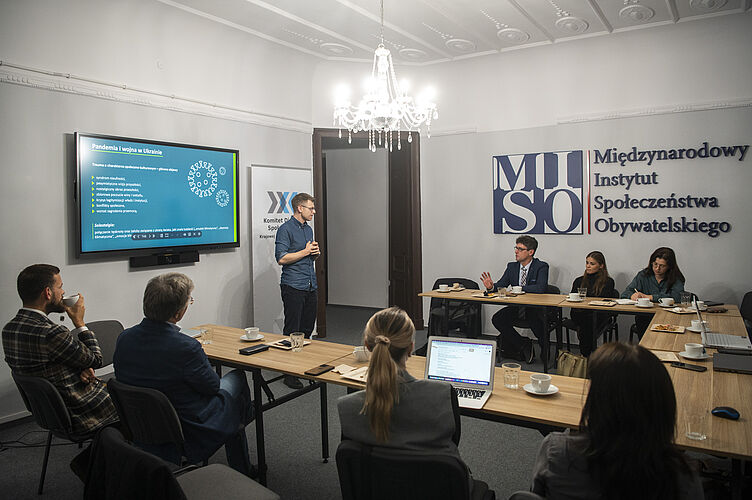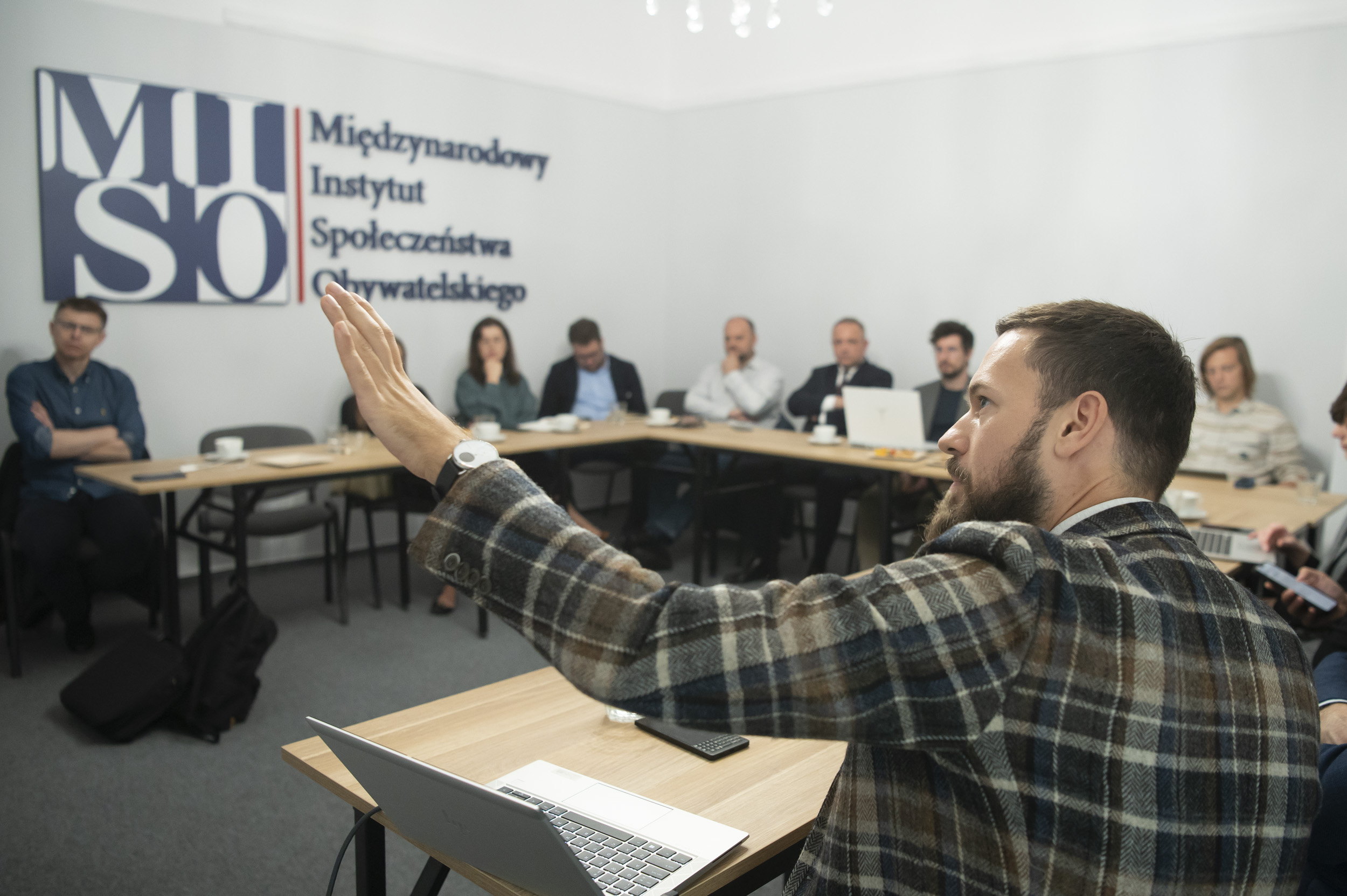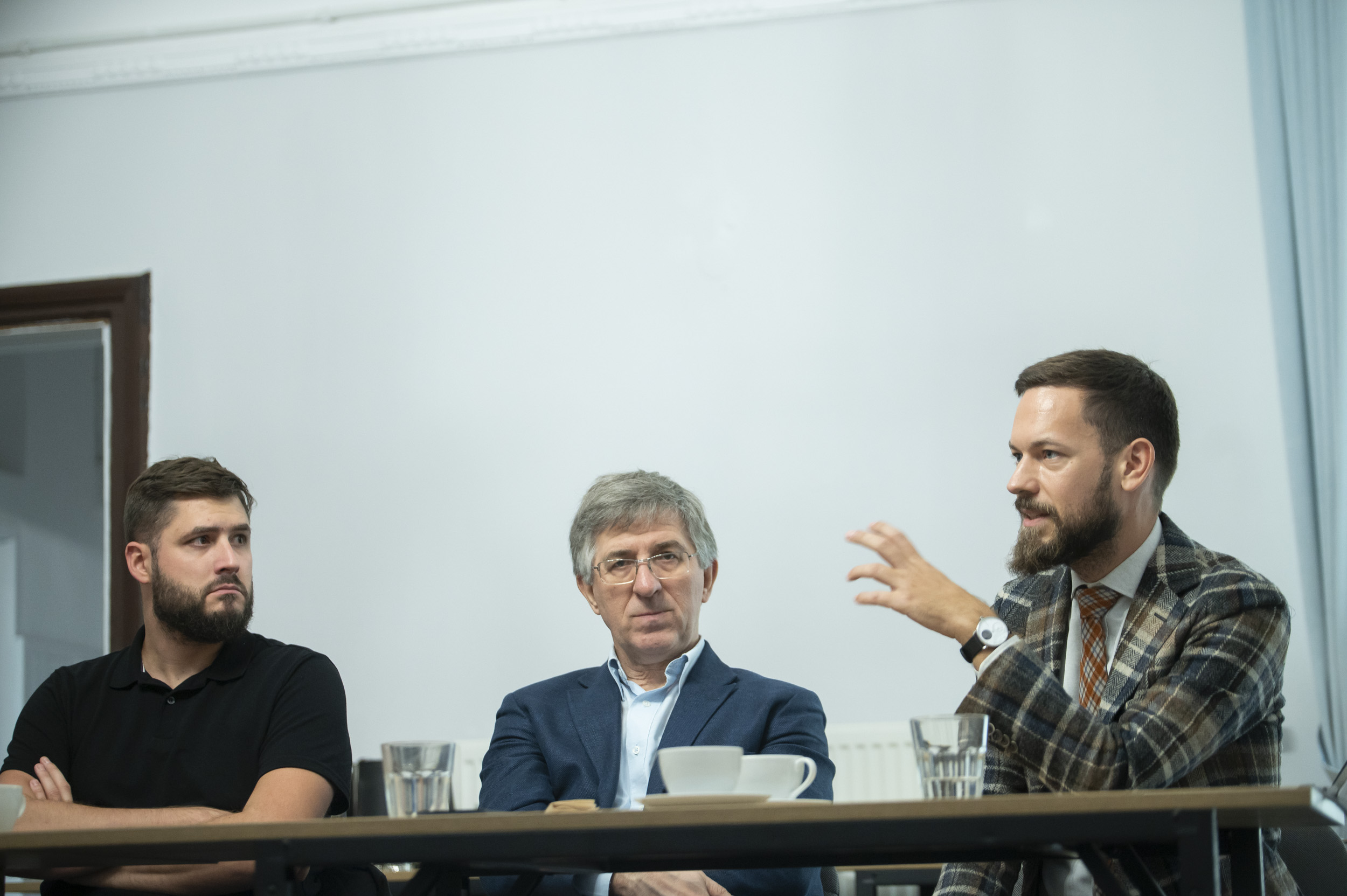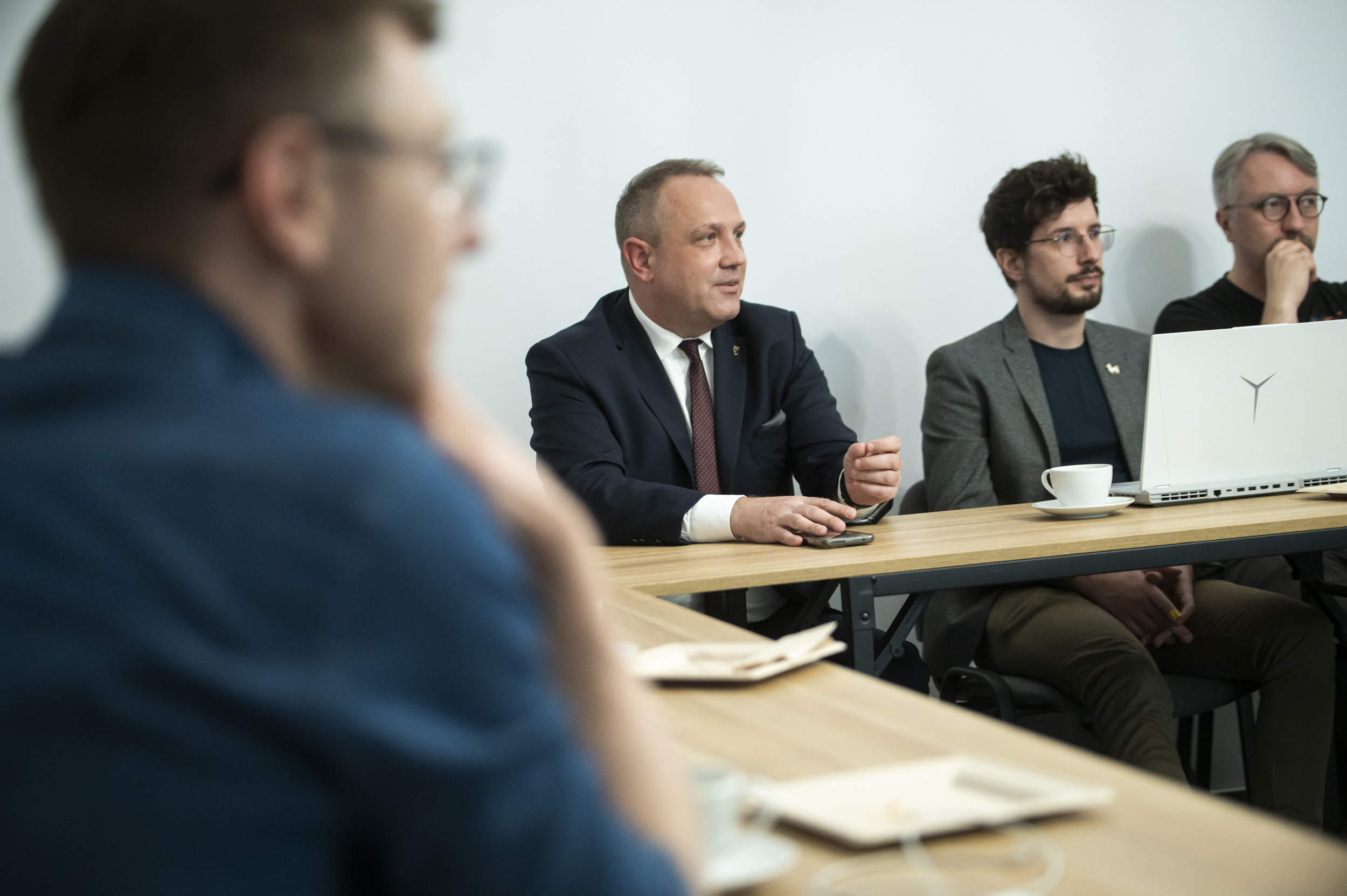“How to convince public institutions, society and businesses of the new climate policy?” Meeting of the Social Dialogue Committee of the Polish Chamber of Commerce (KDS KIG -Polish acronym)
In the era of the climate catastrophe and Poland's current energy crisis, the most visible manifestations of which are the rising costs of raw materials and problems of raw materials availability, the climate policy has become a topic of more heated discussion compared to previous years. In order to meet both current problems and future challenges, it is necessary to introduce an appropriate climate policy – the one that will protect our climate on the one hand, and guarantee Poland's energy security on the other.
The first to speak was Jacek Hutyra, climate strategy advisor for Orange Polska and Poland's first climate officer, who addressed the topic of green strategies in business. He began by presenting the results of a study commissioned by Orange Polska, which shows that for 75 percent of Polish consumers, climate protection is important both in everyday life and when making purchasing decisions. He stressed that climate issues are important to all Orange stakeholders - customers, investors and employees, but those issues also attract a growing attention of the media and civil society. He also referred to the phenomenon of greenwashing in companies - “The easiest thing to do is to repaint chimneys green, but this will only be an image stunt that generates costs. Real energy transformation requires effort, but it also brings real savings. It is important to remember that the greenest energy is the one we do not consume.”
Wojciech Konecki, Vice President of the Polish Chamber of Commerce and Chairman of the board of the Association of Household Appliances Producers APPLiA Poland, devoted his speech to the challenges of the Closed -Loop Economy and Extended Producer Responsibility facing the domestic appliance industry. He pointed out that based on the current law, household appliance manufacturers are responsible for the entire circulation of manufactured equipment. They must also collect from the market some of the appliances produced and recycle and reuse them. However, he pointed out that legal solutions should be designed to be feasible. He added that one of the priorities for the closed-loop economy today is education. “Adult habits are sometimes difficult to change. On the other hand, when children bring an idea from school or kindergarten it also affects parents. That's why we have reached 3,000 schools and several hundred kindergartens, where we have trained 3 million children on climate protection.”
Dr. Konrad Ciesiołkiewicz, Chairman of the Social Dialogue Committee of the Polish Chamber of Commerce, was the third speaker, stating that a pro-environmental attitude implies a two-way relationship between human beings and the environment. “It starts with what we have in our heads and the relationship between people and power. Part of it is the anti-hierarchical attitude of thinking about the democratic state,” the chairman began. He also pointed out that many people have lost their connection to the environment and have reduced their activities solely to their social roles, which makes it possible to reduce cognitive dissonance towards the climate catastrophe. Therefore, pro-environmental education cannot be reduced solely to material aspects, but must also take into account social elements. “The GDP paradigm is the source of many psychological, economic and social costs, because according to it, what is not measurable in a given currency (e.g., social capital) it does not contribute to development,” he said. He also noted that we are facing a social trauma in Poland today, the symptoms of which include a decline in confidence indicators, a pessimistic vision of the future and a nostalgic image of the past. Its cause is also the climate catastrophe - “for the young generation, it has an identity character. Phrases such as sadness and climate depression or solastalgia (a combination of longing and mourning related to the loss of the world as the humanity knew it) have already entered our language permanently,” he said. Trauma well worked through can be the basis for building new life attitudes, including human responsibility measured also from the viewpoint of relationships with future generations and the planet.
Piotr Drygas, PhD student at the Faculty of Sociology at the University of Warsaw affiliated with the Foundation for Social and Economic Initiatives, participated in the discussion accompanying the speeches. In the context of problems with the perception of the climate crisis, he pointed out that “our brains are constructed to take into account a limited number of threats, focusing especially on the near-term and short-term ones.” However, this does not mean that we are devoid of causality on the topic of climate protection, it just shows “the importance of social practices that mediate our conditioned biological cognition,” he said. He went on to emphasize that after 2000, the development of knowledge about climate change ceased to be correlated with an increase in awareness of the human impact on the climate crisis, and this reportedly happened, because “it became the subject of political polarization, as is best seen in the United States, where climate change denial was managed by the Republican Party, and pro-climateism was written into the Democratic Party's program and became part of liberal views.” The conclusion is that “without an ideological filter, that is, accepting that knowledge is mediated by our worldview of reality, we will not move forward,” he continued. Since views on climate protection in Poland are also politically correlated, this aspect should also be taken into account when planning national action on climate protection. “We need to plan and address our pro-climate actions to each side of the political dispute in a slightly different way, regardless of who is in power,” he continued.
The discussion on climate policy continued with Zbigniew Derdziuk, program head of the Social Dialogue Committee of the Polish Chamber of Commerce, who stressed the importance of impulses that make climate protection issues break through to wider awareness. As an example of such an impulse, he considered the activities of Greta Thunberg, thanks to whom the topic has sparked worldwide. “This shows that it takes impetus, revelation and leadership to spread certain ideas, on the one hand, and methodical action and state policy on the other. It is necessary to combine both,” he stressed. He pointed out, however, that at the same time we are dealing with a certain indolence of the state in the subject of climate protection and energy security. Its effect is that we have to wait for emergencies that will be able to make us change. He cited here an example of high electricity prices, which forced the development of renewable energy sources in Poland.
Łukasz Komuda, an economic expert at the KDS KIG, assessed that on the subject of pro-climate measures, “the low-hanging fruit has already been picked,” and that the problems begin where the next step of the transition does not allow reconciliation of economic and climate benefits. He, too, referred to educational activities, but pointed out that children are already overwhelmed by the amount of material, and commonly advocated educational programs in schools are not the solution to every problem - “we treat children as if they had time and attention of rubber band-type, as we could put any number of topics into their program - digital education, education for peace, protection from violence. You can't squeeze everything into schools.” He stressed that systemic solutions, implemented at the state and supranational levels, are key to coping with the climate catastrophe - “Individual actions are needed, but they are not enough,” he concluded.
The topic of education was also raised by Magdalena Bigaj, a social communication expert and president of the Institute for Digital Citizenship, who said that the problem in this dimension is the dissonance between what children are taught and what actions are actually taken. “This threatens to exacerbate fears in children, who learn in schools how things should be, and later observe how they are not, which only contributes to the aforementioned intergenerational rupture.” It is crucial not only to educate children, but to take all measures considering their interests. “I think each of us is able to name a few laws that, if filtered through the well-being of children - their right to life and a safe future - could not be adopted,” she concluded.









